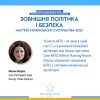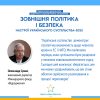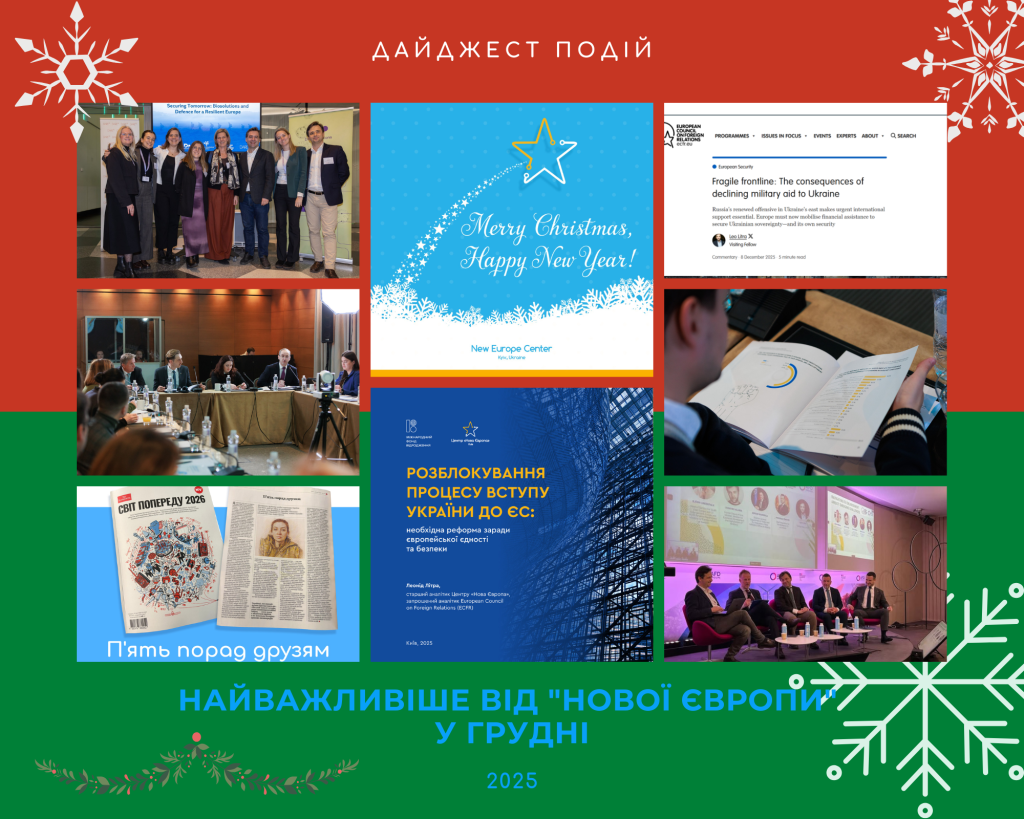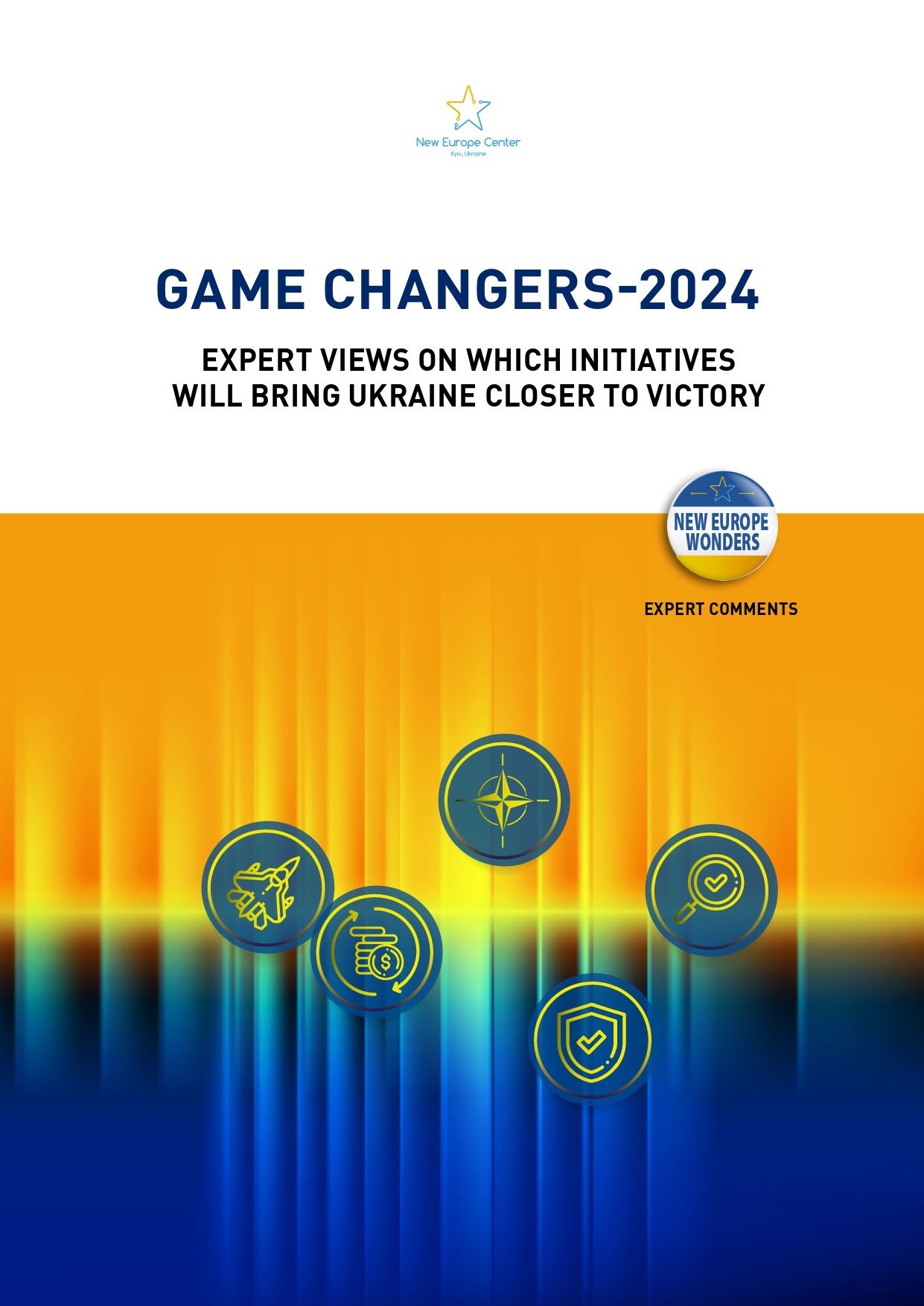
Two years of the full-scale war is sufficiently long to draw the correct conclusions: which measures helped Ukraine in the fight against the aggressor, and which, on the contrary, weakened it. With the next pseudo-election in Russia approaching, discussions about what to expect from Putin in the short term intensified in expert and political circles. On the other hand, the New Europe Centre decided to slightly change the emphasis in the discourse – to what the West should do to force Russia to peace. Our question to the experts was: “Which measures can become game changers for Ukraine’s future victory in the war against Russia in 2024?” On February 23, 2024, the New Europe Centre shared its vision of what game changers should be in the near future[1]
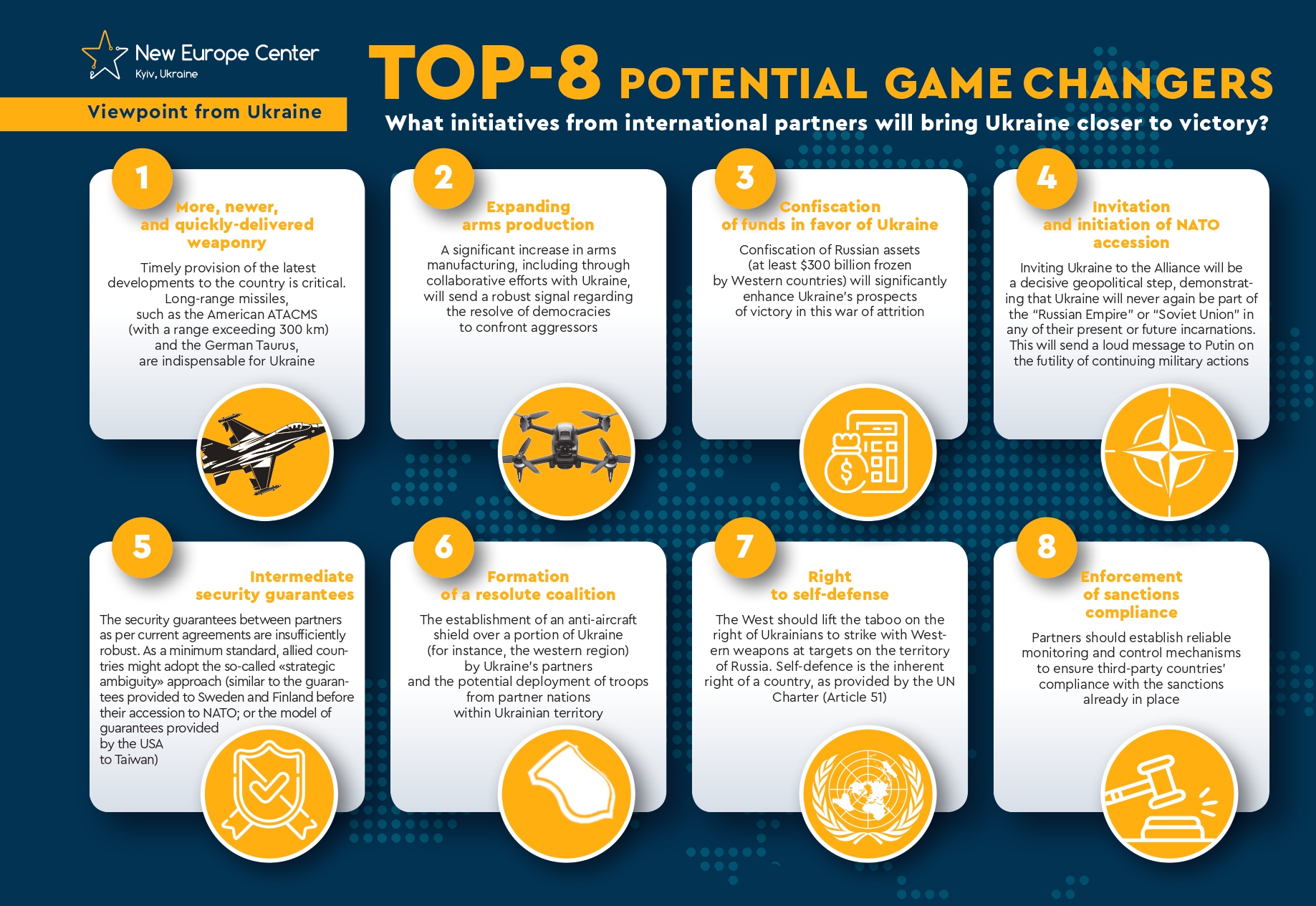
[1] The New Europe Centre identified the biggest failures and achievements of Western aid over the two years of the full-scale war, February 23, 2024, http://neweurope.org.ua/analytics/poglyad-z-ukrayiny-otsinka-dopomogy-zahodu-v-dva-roky-velykoyi-vijny-rosiyi-v-ukrayini/
The experts answers were kindly published by TSN.ua (Ukrainian).
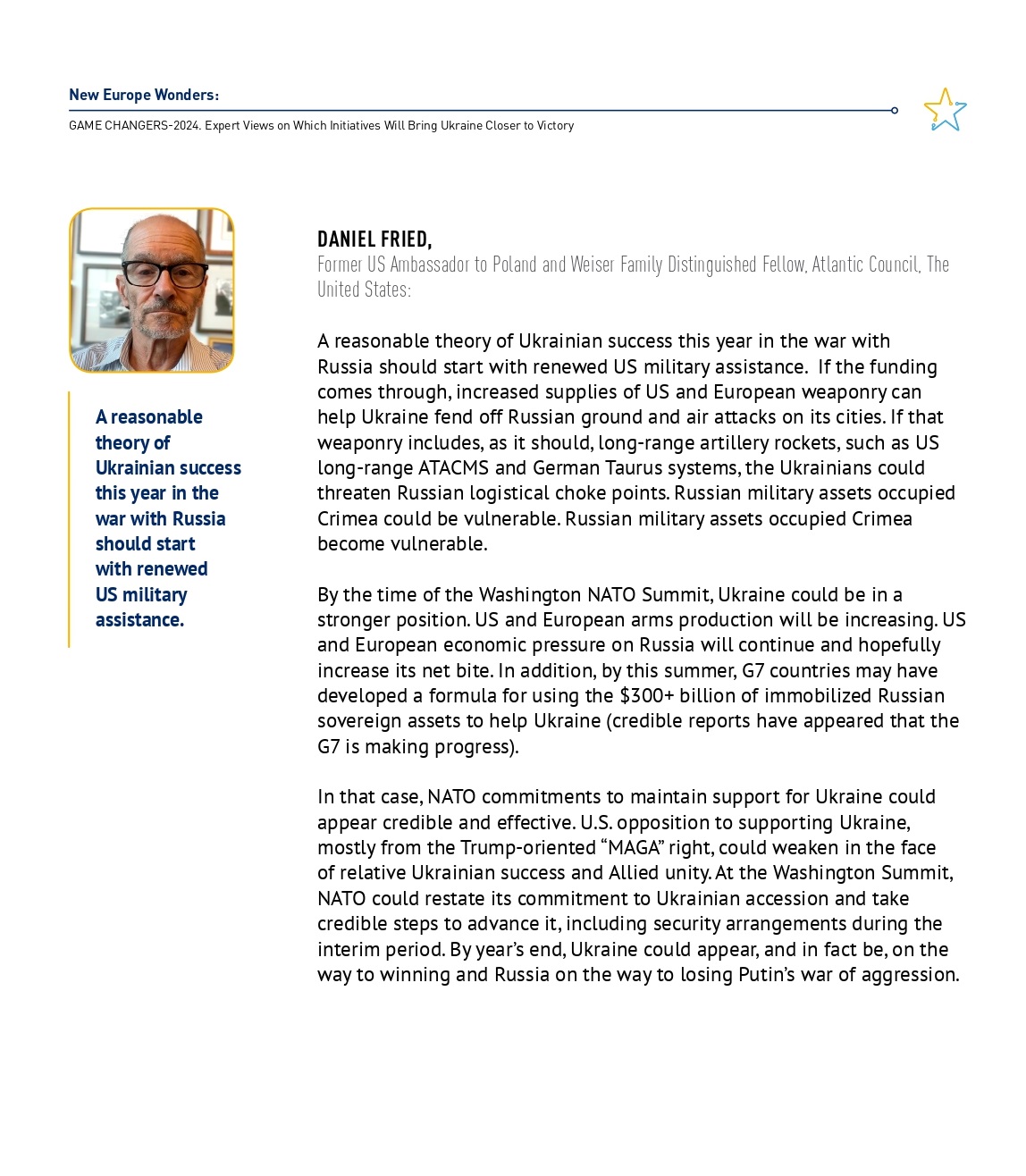
Daniel Fried, Former US Ambassador to Poland and Weiser Family Distinguished Fellow, Atlantic Council, The United States:
A reasonable theory of Ukrainian success this year in the war with Russia should start with renewed US military assistance. If the funding comes through, increased supplies of US and European weaponry can help Ukraine fend off Russian ground and air attacks on its cities. If that weaponry includes, as it should, long-range artillery rockets, such as US long-range ATACMS and German Taurus systems, the Ukrainians could threaten Russian logistical choke points. Russian military assets occupied Crimea could be vulnerable. Russian military assets occupied Crimea become vulnerable.
By the time of the Washington NATO Summit, Ukraine could be in a stronger position. US and European arms production will be increasing. US and European economic pressure on Russia will continue and hopefully increase its net bite. In addition, by this summer, G7 countries may have developed a formula for using the $300+ billion of immobilized Russian sovereign assets to help Ukraine (credible reports have appeared that the G7 is making progress).
In that case, NATO commitments to maintain support for Ukraine could appear credible and effective. U.S. opposition to supporting Ukraine, mostly from the Trump-oriented “MAGA” right, could weaken in the face of relative Ukrainian success and Allied unity. At the Washington Summit, NATO could restate its commitment to Ukrainian accession and take credible steps to advance it, including security arrangements during the interim period. By year’s end, Ukraine could appear, and in fact be, on the way to winning and Russia on the way to losing Putin’s war of aggression.
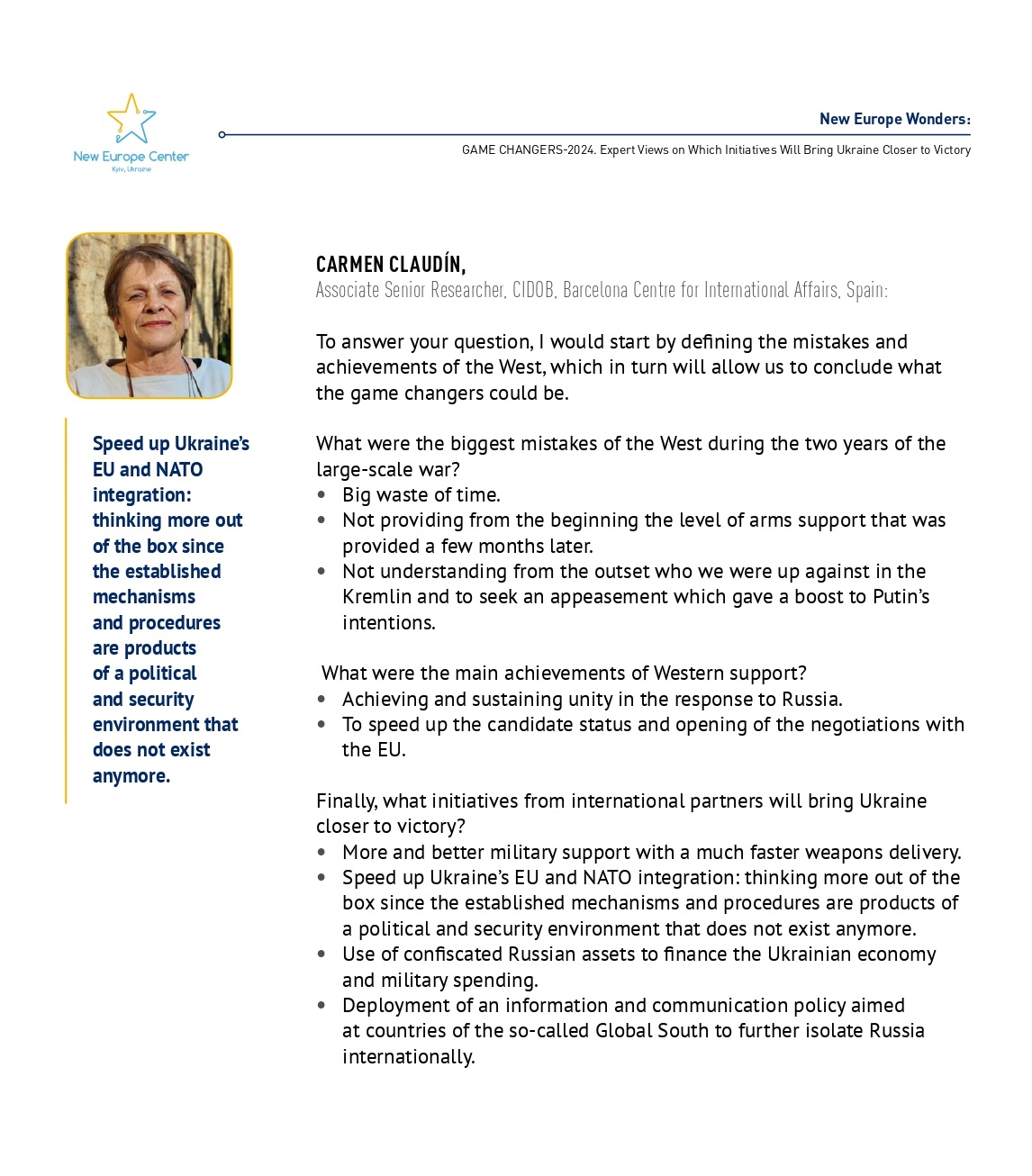
Carmen Claudín, Associate Senior Researcher, CIDOB, Barcelona Centre for International Affairs, Spain:
To answer your question, I would start by defining the mistakes and achievements of the West, which in turn will allow us to conclude what the game changers could be.
What were the biggest mistakes of the West during the two years of the large-scale war:
- Big waste of time.
- Not providing from the beginning the level of arms support that was provided a few months later.
- Not understanding from the outset who we were up against in the Kremlin and to seek an appeasement which gave a boost to Putin’s intentions.
What were the main achievements of Western support?
- Achieving and sustaining unity in the response to Russia.
- To speed up the candidate status and opening of the negotiations with the EU.
Finally, what initiatives from international partners will bring Ukraine closer to victory?
- More and better military support with a much faster weapons delivery.
- Speed up Ukraine’s EU and NATO integration: thinking more out of the box since the established mechanisms and procedures are products of a political and security environment that does not exist anymore.
- Use of confiscated Russian assets to finance the Ukrainian economy and military spending.
- Deployment of an information and communication policy aimed at countries of the so-called Global South to further isolate Russia internationally.
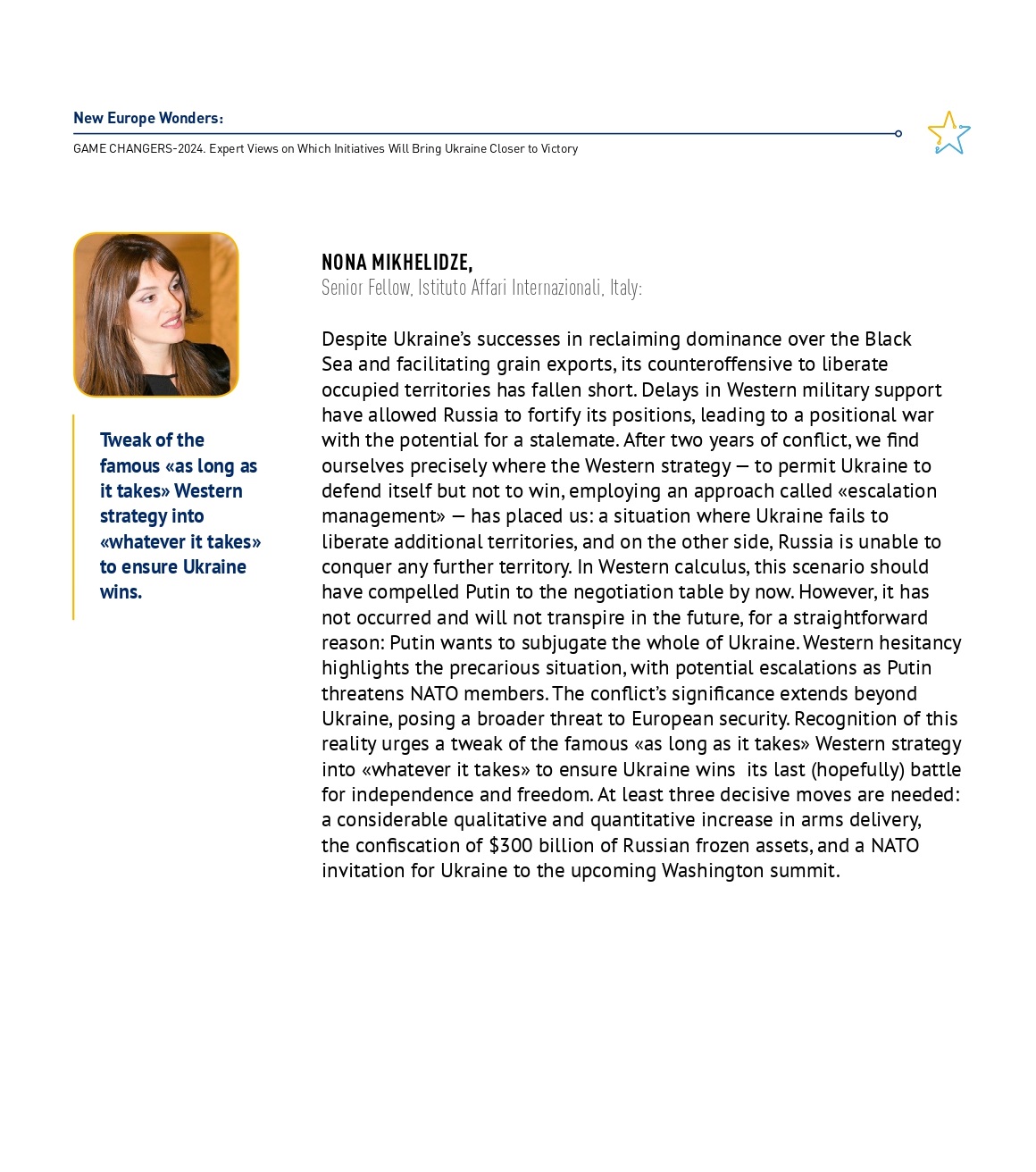
Nona Mikhelidze, Senior Fellow, Istituto Affari Internazionali, Italy:
Despite Ukraine’s successes in reclaiming dominance over the Black Sea and facilitating grain exports, its counteroffensive to liberate occupied territories has fallen short. Delays in Western military support have allowed Russia to fortify its positions, leading to a positional war with the potential for a stalemate. After two years of conflict, we find ourselves precisely where the Western strategy – to permit Ukraine to defend itself but not to win, employing an approach called “escalation management” – has placed us: a situation where Ukraine fails to liberate additional territories, and on the other side, Russia is unable to conquer any further territory. In Western calculus, this scenario should have compelled Putin to the negotiation table by now. However, it has not occurred and will not transpire in the future, for a straightforward reason: Putin wants to subjugate the whole of Ukraine. Western hesitancy highlights the precarious situation, with potential escalations as Putin threatens NATO members. The conflict’s significance extends beyond Ukraine, posing a broader threat to European security. Recognition of this reality urges a tweak of the famous “as long as it takes” Western strategy into “whatever it takes” to ensure Ukraine wins its last (hopefully) battle for independence and freedom. At least three decisive moves are needed: a considerable qualitative and quantitative increase in arms delivery, the confiscation of $300 billion of Russian frozen assets, and a NATO invitation for Ukraine to the upcoming Washington summit.
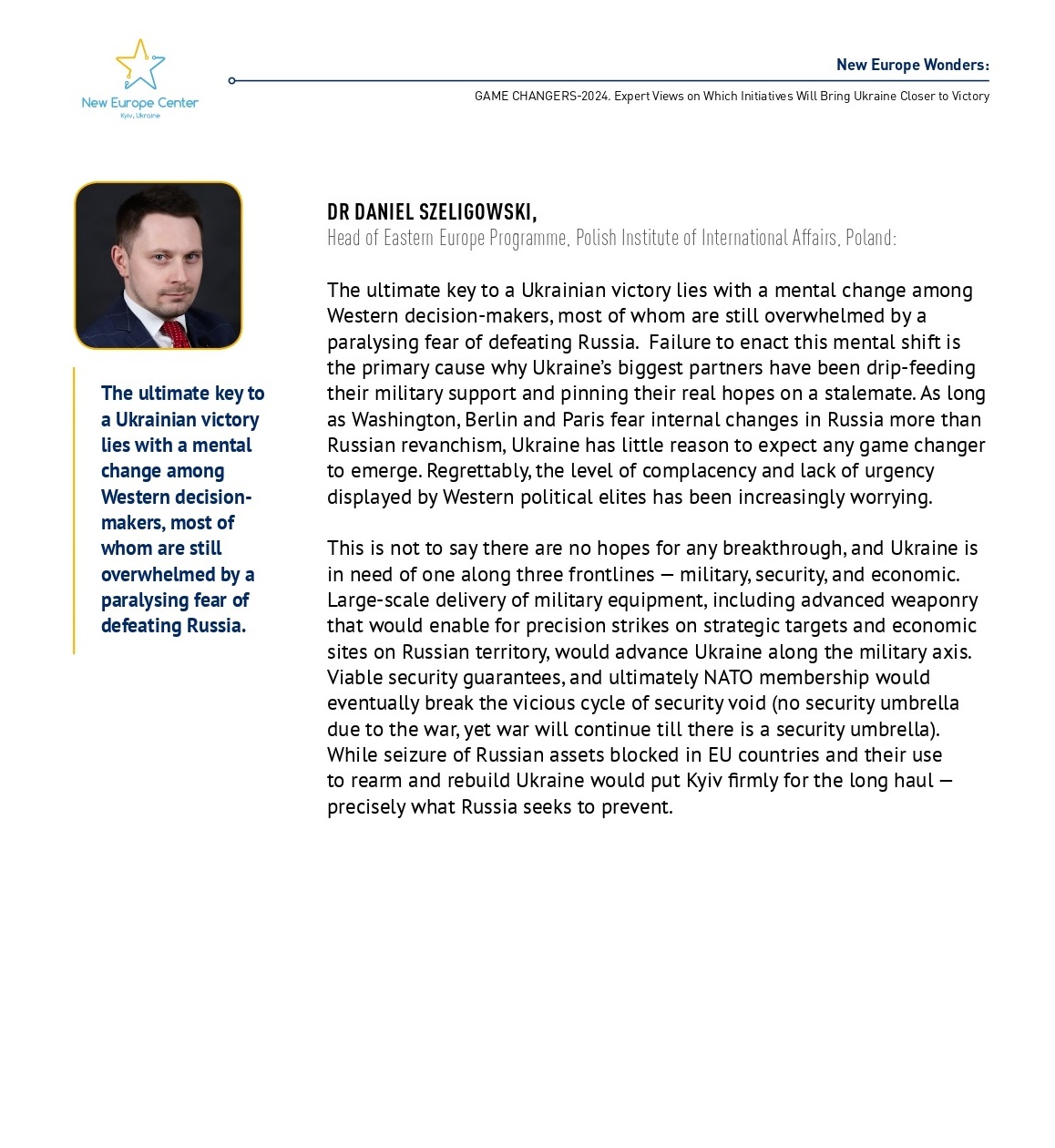
Dr Daniel Szeligowski, Head of Eastern Europe Programme, Polish Institute of International Affairs, Poland:
The ultimate key to a Ukrainian victory lies with a mental change among Western decision-makers, most of whom are still overwhelmed by a paralysing fear of defeating Russia. Failure to enact this mental shift is the primary cause why Ukraine’s biggest partners have been drip-feeding their military support and pinning their real hopes on a stalemate. As long as Washington, Berlin and Paris fear internal changes in Russia more than Russian revanchism, Ukraine has little reason to expect any game changer to emerge. Regrettably, the level of complacency and lack of urgency displayed by Western political elites has been increasingly worrying.
This is not to say there are no hopes for any breakthrough, and Ukraine is in need of one along three frontlines – military, security, and economic. Large-scale delivery of military equipment, including advanced weaponry that would enable for precision strikes on strategic targets and economic sites on Russian territory, would advance Ukraine along the military axis. Viable security guarantees, and ultimately NATO membership would eventually break the vicious cycle of security void (no security umbrella due to the war, yet war will continue till there is a security umbrella). While seizure of Russian assets blocked in EU countries and their use to rearm and rebuild Ukraine would put Kyiv firmly for the long haul – precisely what Russia seeks to prevent.
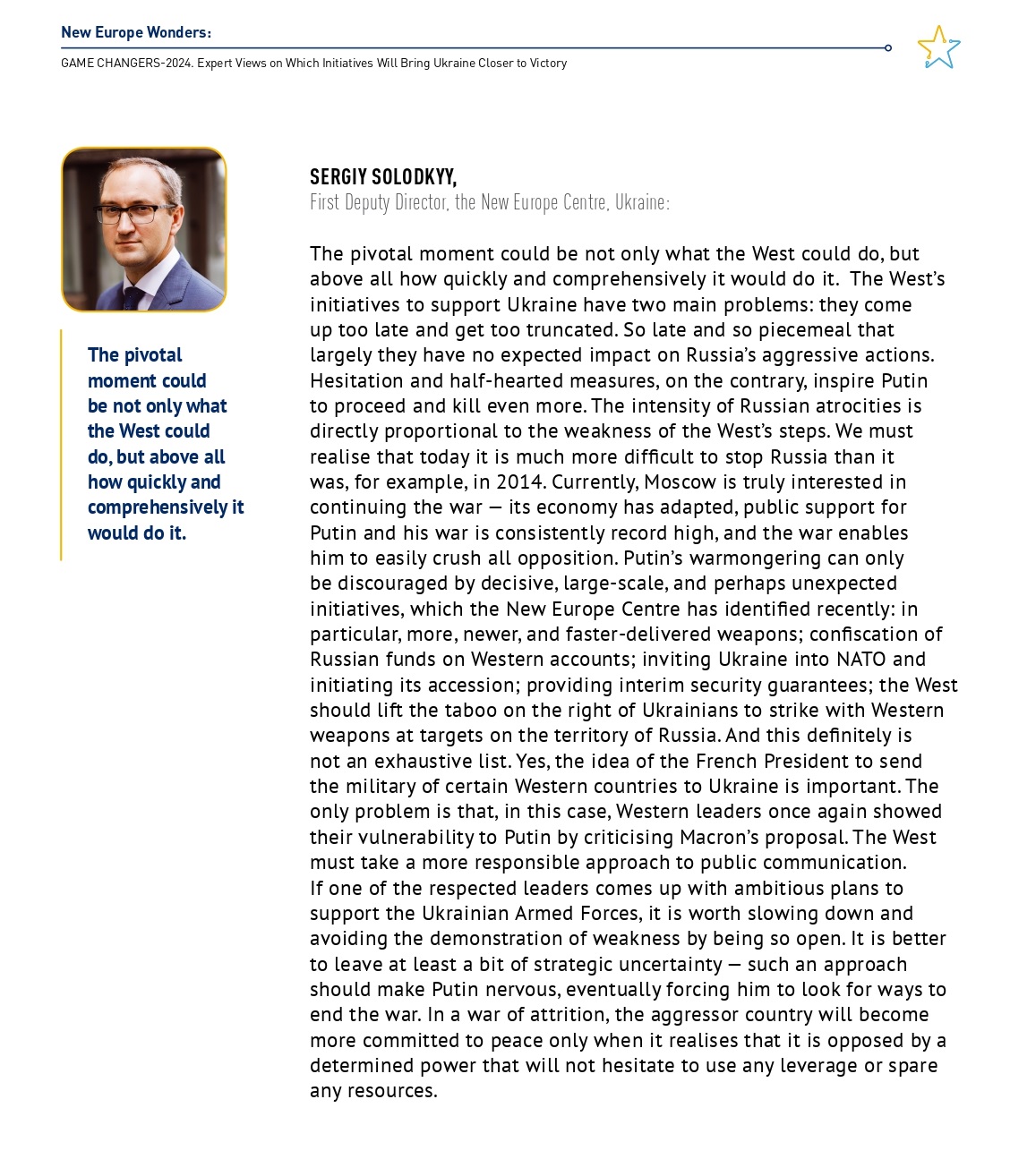
Sergiy Solodkyy, First Deputy Director, the New Europe Centre, Ukraine:
The pivotal moment could be not only what the West could do, but above all how quickly and comprehensively it would do it. The West’s initiatives to support Ukraine have two main problems: they come up too late and get too truncated. So late and so piecemeal that largely they have no expected impact on Russia’s aggressive actions. Hesitation and half-hearted measures, on the contrary, inspire Putin to proceed and kill even more. The intensity of Russian atrocities is directly proportional to the weakness of the West’s steps. We must realise that today it is much more difficult to stop Russia than it was, for example, in 2014. Currently, Moscow is truly interested in continuing the war – its economy has adapted, public support for Putin and his war is consistently record high, and the war enables him to easily crush all opposition. Putin’s warmongering can only be discouraged by decisive, large-scale, and perhaps unexpected initiatives, which the New Europe Centre has identified recently: in particular, more, newer, and faster-delivered weapons; confiscation of Russian funds on Western accounts; inviting Ukraine into NATO and initiating its accession; providing interim security guarantees; the West should lift the taboo on the right of Ukrainians to strike with Western weapons at targets on the territory of Russia. And this definitely is not an exhaustive list. Yes, the idea of the French President to send the military of certain Western countries to Ukraine is important. The only problem is that, in this case, Western leaders once again showed their vulnerability to Putin by criticising Macron’s proposal. The West must take a more responsible approach to public communication. If one of the respected leaders comes up with ambitious plans to support the Ukrainian Armed Forces, it is worth slowing down and avoiding the demonstration of weakness by being so open. It is better to leave at least a bit of strategic uncertainty – such an approach should make Putin nervous, eventually forcing him to look for ways to end the war. In a war of attrition, the aggressor country will become more committed to peace only when it realises that it is opposed by a determined power that will not hesitate to use any leverage or spare any resources.
PDF-version is available here.



